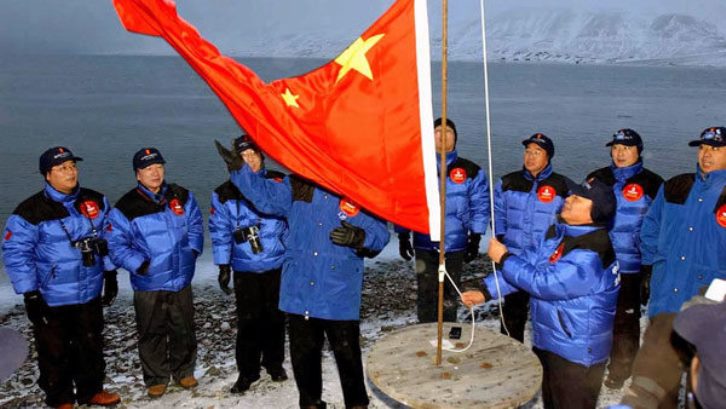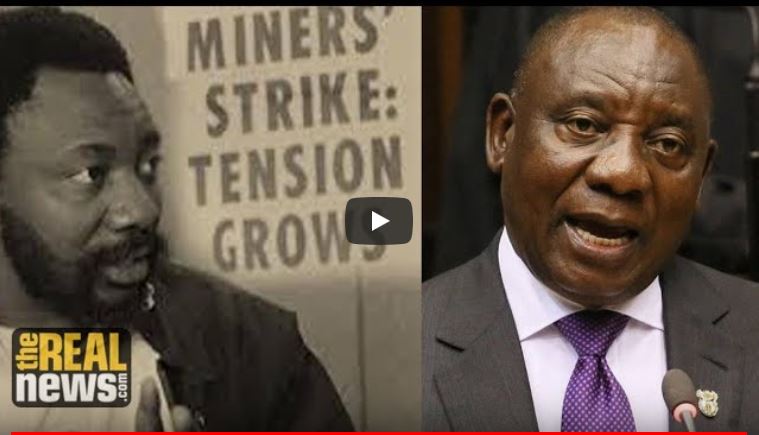 |
|
NEWER ARTICLES OLDER ARTICLES  Russia: Election boosts Putin’s position but serious opposition can develop Rob Jones, Socialist Alternative (CWI Russia) 28 March 2018 4 There were no shock headlines as the votes for Russia’s new President were counted. The Kremlin had called for a 70% vote for Vladimir Putin, with a 70% turnout. As it turned out, the Central Electoral Commission announced that he won nearly 77% of the vote on a 67% turnout.It didn’t take Putin long to return to work. At his victory concert he taunted the British government saying that his increased vote was a reaction to the anti-Russian hysteria whipped up over the murder of Sergei Skripol in Salisbury. He is expected to make some minor changes to the government as he appears to settle in for the next six years. Coming a distant second, with just under 12%, was the ‘Communist Party’-nominated candidate,Pavel Grudinin, followed by right wing nationalist, Vladimir Zhirinovskii with under 6%. The ‘opposition’ Thatcherite-socialite, Kseniya Sobchak, got just 1.5%. The result, giving Putin the highest number of votes for any Presidential candidate since the collapse of the Soviet Union at over 56 million votes, has left the opposition, particularly the pro-western liberal opposition, demoralised and in despair. There should be no doubt that even if there was a fair and democratic election in Russia today, with the current political parties and candidates, Putin would win, probably with a good majority of votes. He was almost guaranteed to increase his vote by 4 million due to the additional electorate in Crimea and the decision of the ‘Just Russia’ party to withdraw their candidate in favour of Putin. http://www.socialistworld.net/index.php/international/europe/70-russia/9721-russia-election-boosts-putin-s-position-but-opposition-will-develop West's Anti-Russian Fervor Will Help Putin Win Election On Sunday  The Real News Network 18 March 2018 Brazil's Military Takeover in Rio Sparks Authoritarian Fears  The Real News Network 2 March 2018 Deeply unpopular Brazilian President Michel Temer issued a decree to put the military in charge of security in Rio de Janeiro instead of police, dubiously claiming the purpose is to crack down on crime. But many Brazilians worry that it's the first stage in a return to military rule, explains journalist Brian Mier http://therealnews.com/t2/story:21251:Brazil%27s-Military-Takeover-in-Rio-Sparks-Authoritarian-Fears Cyril Ramaphosa relaunches neo-liberalism Patrick Bond 27 February 2018 Cyril Ramaphosa’s soft-coup firing of Jacob Zuma from the South African presidency on February 14, after nearly nine years in power and a humiliating struggle to avoid resigning, has contradictory local and geopolitical implications. Society’s general applause at seeing Zuma’s rear end resonates loudly, but concerns immediately arise about the new president’s neo-liberal, pro-corporate tendencies, and indeed his legacy of financial corruption and class war against workers. There is still a lack of closure on the 2012 Marikana Massacre, in spite of his February 20 speech to parliament pledging atonement. New legislation Ramaphosa supports will limit the right to strike, while the new budget has cuts and tax increases that hurt the poorest. Internationally, the emergence of the Brazil, Russia, India, China and South Africa alliance in 2010 (when Beijing invited Pretoria on board) was Zuma’s main legacy, he believed: BRICS offered enormous potential to challenge abusive Western hegemony. The reality, however, has been disappointing, especially in the most unequal and troubled of the five countries, South Africa, where Moscow-trained leadership expertly talked left… but walked right. After Zuma, more extreme fiscal austerity and a return to mining-centric accumulation under Ramaphosa will amplify the misery locally – while likely leaving South Africa’s commitment to the BRICS project in the doldrums. The first evidence of this came on February 21 when Ramaphosa’s inherited finance minister, the corruption-tainted Malusi Gigaba, imposed austerity and liberalized exchange controls. https://zcomm.org/znetarticle/cyril-ramaphosa-relaunches-neo-liberalism/ China: ‘Belt and Road’ - Imperialism with Chinese characteristics  Vincent Kolo: chinaworker.info 24 February 2018 The Chinese dictatorship’s massive infrastructure plan is the spearhead for its whole economic and geopolitical strategy. The Belt and Road Initiative (BRI) has assumed increasing importance for the regime of China’s ‘strongman’ Xi Jinping. The BRI, also known as OBOR (One Belt One Road), is “the world’s biggest building project” according to the Guardian newspaper. Its ambition is to link more than 65 countries with a combined population of 4.5 billion people – three times that of China – into a China-led economic sphere spanning every continent bar the Americas. This is to be achieved through the construction of a series of vast “economic co-operation corridors” comprising fuel pipelines, highways, ports, railways, transnational electric grids and even fibre optic systems. http://www.socialistworld.net/index.php/international/asia/101-china/9658-china-belt-and-road-imperialism-with-chinese-characteristics President Ramaphosa: From Militant Revolutionary to Corporate Magnate  The Real News Network 16 February 2018 The ANC's revolutionary leadership became low level allies of international capital and of all forms of exploitation of the working peoples of Southern Africa says scholar Horace G. Campbell. http://therealnews.com/t2/story:21173:President-Ramaphosa%3A-From-Militant-Revolutionary-to-Corporate-Magnate Lula, Brazil Elections and the Left Sabrina Fernandes (teleSUR English) 25 January 2018 In an exclusive interview with teleSUR, Brazilian professor and researcher Sabrina Fernandes discusses former President Luiz Inacio “Lula” da Silva’s Jan. 24 corruption trial and forthcoming elections in the South American country. What has been the response of the non-Workers’ Party, PT, left to the current situation and in the lead up to the presidential election? The non-PT left is divided between the organizations in the left that were part of the PT governments and its base, and the left that has stood in a critical stance of the governments, pushing for a more radical agenda. The first is standing together with Lula throughout the sentencing and appeal process and part of it supports him as their preferential candidate, with the notable exception of Manuela D’Avila, from the Communist Party of Brazil, PCdoB. The opposition left, which I call the radical left, is a very fragmented one, so its own positions are also fragmented. Most of the Socialism and Liberty Party, PSOL, internal organizations are standing in solidarity with Lula for his right to be a candidate, which depends on a successful appeal, although the PSOL will have its own presidential candidate. Other parties such as the Unified Socialist Workers’ Party, PSTU, and the Brazilian Communist Party, PCB, have kept a wider distance from the troubles afflicting the PT, and it’s noteworthy that the PSTU promoted a “Out with all of them!” campaign during the former President Dilma Rousseff impeachment crisis and they are urging the working class to organize against President Michel Temer’s reforms, rather than focusing on the trial. https://zcomm.org/znetarticle/lula-brazil-elections-and-the-left/ Cape Town Water Wars: A Literal Shitstorm  In Cape Town, one of the most unequal cities in the world, poor people are taking the buckets they use for chemical toilets and turning them into weapons, as the water shortage intensifies class conflicts. Patrick Bond interviewed on the The Real News Network 22 January 2018 China: Regime’s anti-pollution policies doomed to fail  Li Yiming (chinaworker.info) 3 January 2018 The word environment was mentioned 89 times by Xi Jinping in his report to the 19th Congress of the ruling “communist” party, even more than ‘economy’. He has sent out investigative teams from the central government to the provinces to check on the progress of anti-pollution measures. Reports indicate that over 12,000 officials and 18,000 companies have been prosecuted. The media claims that this is China’s largest environmental protection campaign in history. Xi seems to be an ardent champion of the environment, but in fact he is forced into action by increasing anti-pollution protests from below, as well as the enormous economic loss due to environmental destruction. However, economic pressure and an unofficial boycott by local governments mean Xi’s policies will not achieve substantial results. In October, the medical periodical The Lancet published a study, reporting that more than 1.8 million Chinese were killed by pollution in 2015, accounting for one-fifth of all deaths in China. An earlier report published by Nanjing University reveals that among the 74 main cities of China, one-third of the deaths can be attributed to PM2.5 pollution (dangerous airborne small dust particles). http://www.socialistworld.net/index.php/international/asia/101-china/9583-china-regime-s-anti-pollution-policies-doomed-to-fail |
 Before the August 22-24 summit in Johannesburg raised expectations for a new counterbalancing force in global politics – and struck fear into many Western elites’ hearts and minds – at least five factors had reduced the Brazil-Russia-India-China-South Africa (BRICS) bloc to acrimonious paralysis. However, conditions have changed over the past year, and talk of a ‘BRICS+’ with nearly two dozen new members and a ‘de-dollarization’ agenda have raised the profile of this network to an unprecedented – and utterly unrealistic – level. More More BRICS Summit analysis SABC TV (Johannesburg) Newzroom Afrika (Johannesburg) Channel Africa (Johannesburg) ChaiFM radio (Johannesburg) BBC Newsday (London) TRT World Now (Istanbul) Il Manifesto (Rome) China Daily (Beijing) Sputnik (Moscow) eNCA tv news (Johannesburg) MoneyWeb radio (Johannesburg) Democracy Now! (New York) News24 (Johannesburg) News24 (Johannesburg) ZNet (Boston) Rosa Luxemburg Stiftung (Berlin) 
BRICS Bank and China Development Bank corruption: Prof. Patrick Bond |
||||||
